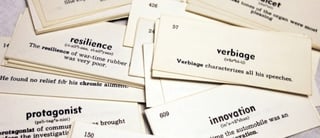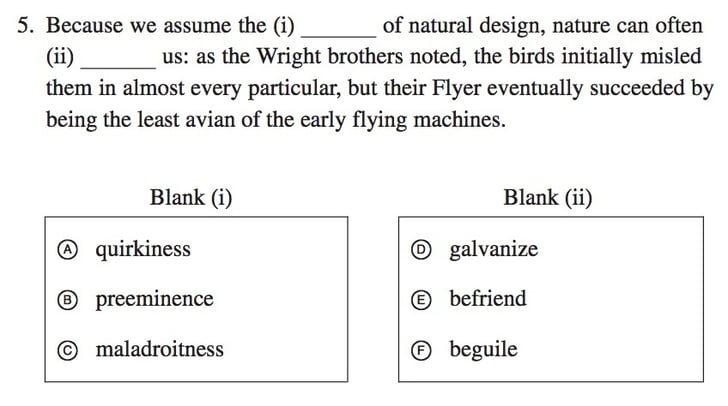About the Author
Mike S. is one of our most experienced test prep tutors. For more information on our GRE prep packages, click here.
 Do you remember studying a ton of vocabulary for your SAT back in high school? Well, you probably took SAT right before the ETS reconfigured the whole thing and removed the vocabulary section.
Do you remember studying a ton of vocabulary for your SAT back in high school? Well, you probably took SAT right before the ETS reconfigured the whole thing and removed the vocabulary section.
That’s right, nowadays high school students don’t have to memorize a giant list of vocabulary to succeed on the standardized tests that get them into universities. Such a pleasure is reserved entirely for grown adults who want to get into the grad school.
Remember that the GRE is supposed to act as a totally level playing field, that gives test takers across the country an equal shot regardless of the schools they went to, the areas they majored in, or, frankly, the time they spent in the library during undergrad.
One gauge of how prepared someone is to succeed in grad school is how strong her vocabulary is, especially since academia revolves so much around writing and publishing research.
Therefore, a strong performance on the GRE’s Verbal Reasoning section doesn’t just communicate that you can analyze text well, but that you can hold your own with your soon-to-be peers.
That’s right, you need a strong vocabulary for the GRE.
Some resources list around 350, and the lists you find in test prep books can range in scope from 900 to 4,500. The best rule of thumb is to push yourself to study a lot of words but to keep it manageable. Try to keep it under 1,000 to give yourself a reasonable goal. Any amount much higher than that can just end up being overwhelming and potentially discourage you from taking up an impactful study routine.
Keep in mind that the average adult English speaker knows upwards of 40,000 words, so making sure you have a firm grasp of an extra 600 to 1,000 especially impressive ones really isn’t that huge of a task.
Make flashcards for a new 50 to 100 words each week and study for as many minutes a day as you need to in order to feel confident with that set of vocabulary before you add new words for your pile next week. You can find lists of vocab like this one from GreenLight Test Prep with some quick Googling, and there are services like Memorang that provide pre-made flashcards for the GRE as well.
Any time you see a word you don’t recognize on a practice test or in drills in a test book, jot it down and add it to next week’s pile.
Lastly, make sure to keep reviewing the old vocabulary, since you are not just trying to retain these words for test day, but for grad school.
This is an inevitable situation. Come to peace with the fact that you won’t know every single word on the GRE now to save yourself a minor freakout when you’re actually taking the exam.
The best way to deal with Text Completion questions is to use process of elimination. Let’s take a look at one:

Perhaps you are looking at the answer choices for the first blank and don’t know what “maladroitness” means. You can still make a confident decision about whether the other choices do or don’t work.
Based on the context, we know we want a word that suggests nature sets an example to follow. We can eliminate quirkiness because that has nothing to do with an example to follow, and keep preeminence.
Does “preeminence” work in that blank? It absolutely does. If you have to choose between a good answer and one you didn’t understand, choose the good one. If nothing good remains, choose the one you don’t understand. If it’s a toss up, choose the one you don’t understand since that may just be the best one after all. Don’t avoid an answer choice simply because you don’t know the vocab.
About the Author
Mike S. is one of our most experienced test prep tutors. For more information on our GRE prep packages, click here.
Let's look at some tips that can help to improve your GRE Verbal score. The GRE's Verbal section includes three main question types: text completion, sentence...
If you’re studying for the GRE, then you’re probably already aware that vocabulary is a big component of the test. The GRE—or Graduate Record Examination—contains many...